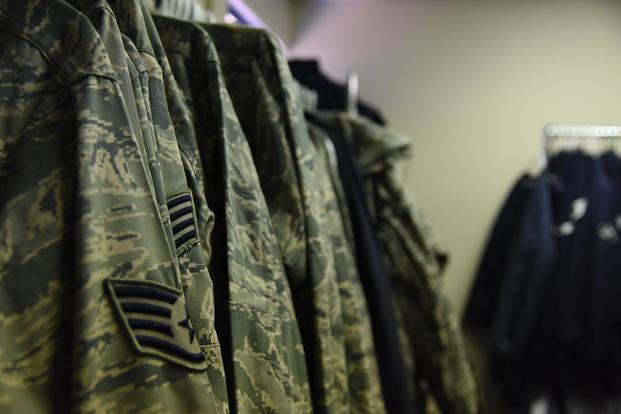
Thousands of Air Force veterans who received less-than-honorable discharges due to post-traumatic stress disorder, traumatic brain injury or other mental health conditions, as well as sexual assault or harassment, will have those separations automatically reviewed due to a new legal settlement.
The service consented to the reviews as part of a settlement in a nationwide class-action lawsuit — Johnson v. Kendall — brought by two airmen in 2021. The lawsuit took aim at the Air Force Discharge Review Board, or AFDRB, for wrongly discharging troops over misconduct linked to a military trauma, such as a combat- or training-related head injury or sexual assault.
“I am pleased that the Air Force is taking steps through this settlement to make the AFDRB more accessible to veterans like me who love and have served this country,” Martin Johnson, a former F-16 crew chief with PTSD who brought the suit on behalf of the settlement class, said in a Thursday press release. “I am glad the Air Force is committed to taking less-than-honorably discharged veterans’ mental health and trauma seriously.”
The Air Force Discharge Review Board will start automatically reconsidering less-than-honorable decisions on applications received between Sept. 13, 2015, and the date of the settlement, which was set to be finalized in December.
Veterans who served in the Space Force will also be eligible for the reviews.
The settlement also expands the right to reapply for an upgrade to eligible applicants who were discharged and applied to the review board between Sept. 13, 2006, and Sept. 12, 2015, according to the news release.
It applies to those who were discharged from the Air Force, Space Force, Air Force Reserve or Air National Guard under honorable conditions, or under other-than-honorable conditions. But it does not apply to bad conduct discharges, dishonorable discharges, uncharacterized discharges or dismissals, the release said.
General discharges and other-than-honorable discharges, also known as “bad paper” discharges, limit veterans’ access to Department of Veterans Affairs benefits and also can affect a veteran’s long-term earning power, since many employers will not hire anyone with less than a good-conduct discharge.
Military.com reported in 2021 that more than 10,000 former Air Force members could be affected by the case.
“Discharge upgrades are not guaranteed, and applications will be decided on a case-by-case basis,” the Air Force said in a press release. “Eligible veterans who have been identified by the Department of the Air Force will receive notice of their rights under the settlement. However, Department of the Air Force veterans who do not receive notice may still be eligible for relief.”
The settlement also requires the Air Force Discharge Review Board to create a one-year pilot program that will address the issue in future cases, including giving veterans who fail to submit sufficient evidence of their condition or experience an opportunity to add it to their record.
The program will also provide a phone number for applicants to call with inquiries and train members and staff on how mental health conditions can lead to misconduct, according to the news release.
“The Department of the Air Force’s actions to resolve this case underscore our continued commitment to provide former airmen and Guardians fairness, due process, equity, and justice in all cases that are submitted to our review boards,” Alex Wagner, assistant secretary of the Air Force for manpower and reserve affairs, said in the release.
The final approval hearing for the settlement is scheduled for Dec. 4, 2023, in the U.S. District Court for the District of Connecticut. The full settlement and additional details can be found at www.JohnsonAirForceSettlement.com.
— Thomas Novelly can be reached at [email protected]. Follow him on Twitter @TomNovelly.
Related: Air Force Veterans Seek Class-Action Suit over Trauma Consideration in Discharges






